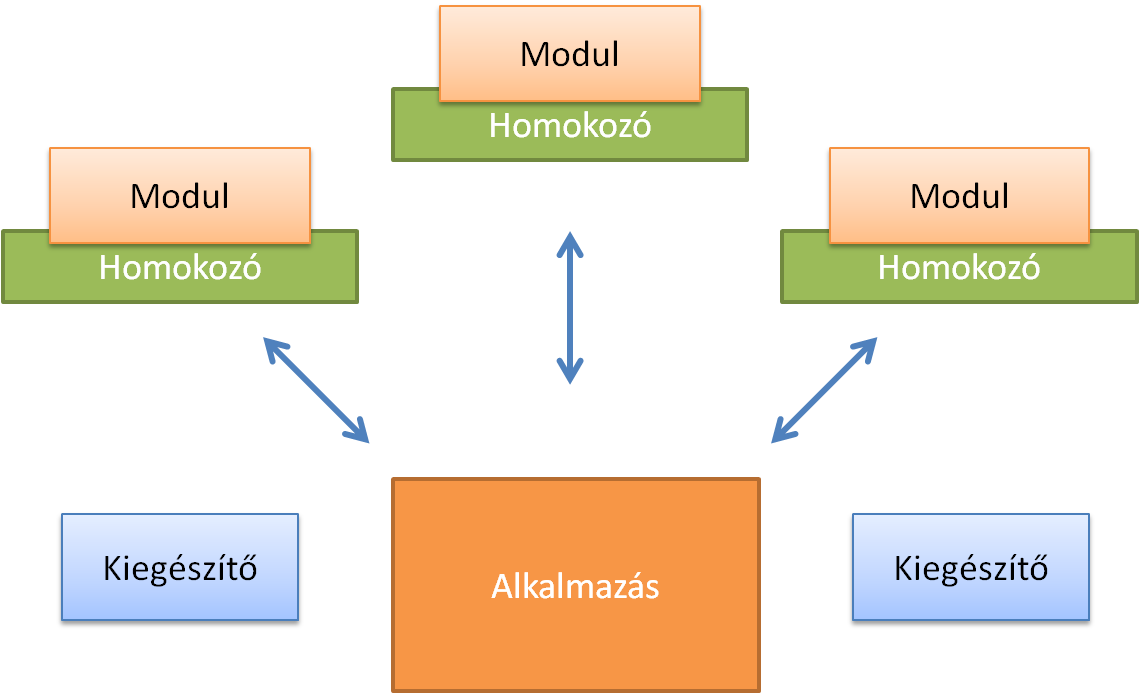JavaScript technologies
Patterns for large client-side applications
Horváth, Győző
senior lecturer
horvath.gyozo@inf.elte.hu
Financed from the financial support ELTE won from the Higher Education Restructuring Fund of the Hungarian Government
Large applications
Possible failure points of large applications
Many application function
Many component
Tight coupling between components
Loosely coupled architectures
- minifying the direct references between entities
- event-based communication
- central event manager
- Nicholas C. Zakas's concepts
- Addy Osmani's concepts
Observability
Observable design pattern
registerObserver(observer)unregisterObserver(observer)notifyObservers()

Observability in Backbone
on()off()trigger()
Making an observable object
// The object
var object = {};
// Making it observable
_.extend(object, Backbone.Events);
// Subscribing with a function
object.on("alert", function(msg) {
alert("Triggered " + msg);
});
// Triggering event
object.trigger("alert", "an event");Observability in Backbone
Every Backbone entity have this feature:
BackboneBackbone.ModelBackbone.CollectionBackbone.View
Problem
Subscribing to each others events, the tight coupling remains between the observable objects.
A possible solution
Communication through a central object
Central event manager pattern (aka event bus).
// The central event manager
var pubsub = _.extend({}, Backbone.Events);Centralized event management

Centralized event handling in Backbone applications
Backbone.Radio
Backbone.Radio
npm install --save backbone.radioBasic concepts:
- Event
- Command
- Request
Events
on(), off(), trigger(), once()
listenTo(), stopListening()

Commands
comply(), stopComplying(), command(), complyOnce()

Requests
reply(), stopReplying(), request(), replyOnce()

Channels
Message segmentation
var Radio = require('backbone.radio');
var inboxChannel = Radio.channel('inbox');
inboxChannel.trigger(/*...*/);Use cases
- Event
- Loose coupling of views
- Notifying about state changes
- Command
- e.g. logging
- message for a given object
- Request
- ensuring common resources